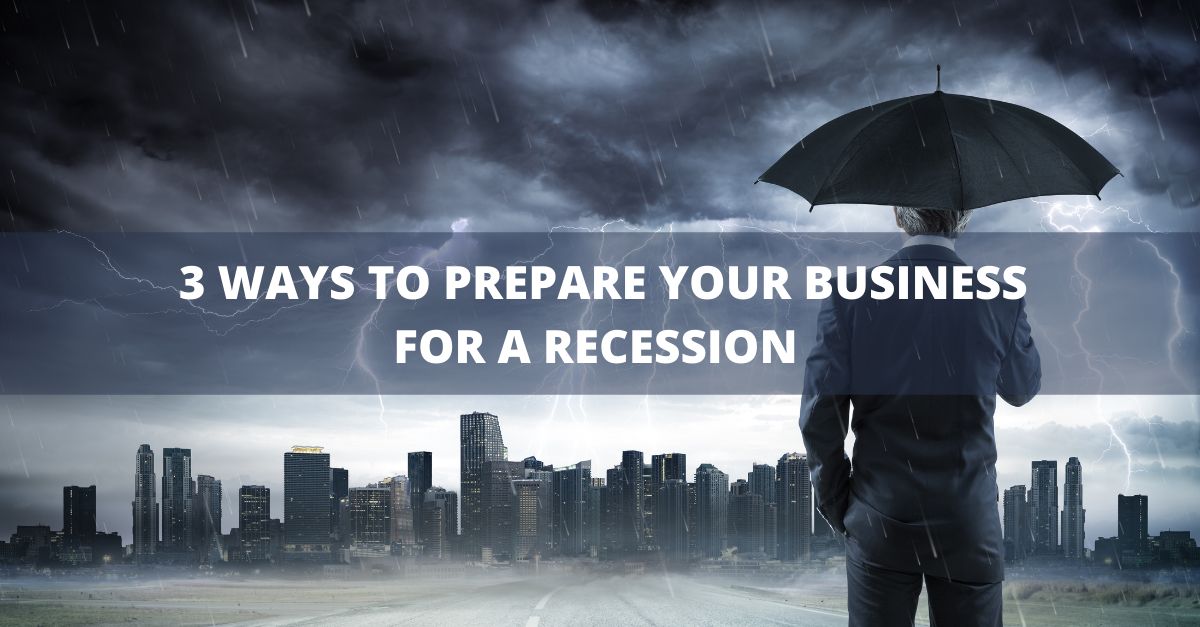How CFOs are Integral to Helping Small Business be Successful
Since I started my CFO Services Firm, it seems like small businesses have had to endure challenges...
By: Shane Bender on Apr 10, 2023 10:58:00 AM

As a business owner, it's crucial to be prepared for a potential downturn in the economy. The past has shown us that recessions are a part of the economic cycle, and it's best to be recession-proof to overcome widespread economic hardship.
In this blog post, we'll explore three ways to prepare your business for the next recession: diversification, managing your cash and profit, and running a scenario analysis. By implementing these strategies, your business can better weather the storm and emerge stronger.
As we approach uncertain economic times, businesses need to think ahead and prepare for potential challenges that may arise during a recession. One key strategy to minimize the impact of a downturn is to diversify your business.
Diversification involves expanding your customer base, product offerings, and geographic locations. By spreading your risk across multiple areas, your business can better weather the storm and emerge stronger. Here are several diversification ideas that will help your business be more prepared for a recession:
Recessions affect different areas at different magnitudes, so it’s smart to look at your customers by geographic location. For example, during the last recession, real estate prices in California, Nevada, and Florida dropped 40-50%. Although many other markets such as Texas, Georgia, or even New York didn’t get hit so hard.
Having branches or operations based out of these lesser affected pockets would serve to ease the impact on the business as a whole, and some areas may even experience relative growth.
Specific industries are affected differently during a recession. According to Investopedia, bargain and discount stores, grocery stores, home maintenance stores, healthcare, and financial consultants do better during a recession. Having customers in these fields may help you hold on to some business a little easier than others.
However, some industries struggle in a recession, but this can vary depending on what was the cause of the downturn. For example, during the last recession, motor vehicle dealers, construction, furniture, and travel accommodations struggled. Observing the cause and effect of the recession on different industries will help your business know who to target and who to temper expectations for.
As the economy changes, you have to develop new products and services to meet the needs of your customers and clients. Be sure to add value and listen to what they need. It never hurts to survey or ask them if you need help in order to become a more valuable and necessary resource.
In the service industry especially, relationships are crucial. In the event of a recession, strong relationships will put you above price-conscious shoppers that are looking for the best deal.
In any business, we know that ‘Cash is King’, and we are always looking for a profit. If you already have a profitable business with cash in the bank, you can withstand a downturn and last longer than competitors. If you have enough cash and leverage, you may even be able to buy a business that is struggling at a discount.
More cash and profit allow you to retain top employees longer, which will be helpful as the economy turns around. It’s common for a business to use all their cash and run losses or narrow margins, even when the economy is doing well. This isn’t necessarily a bad practice, just be ready to assess and adjust regularly so you’re not caught unaware and without the resources to weather the storm.
You should always have a good forecast of your business to project revenue, expenses, staffing, and cash flow. Surprisingly, many companies do not do this, which makes it difficult to fully understand how critical investments and changes will affect their business.
I suggest running a worst-case version in which there is a recession and see how this affects your business. These are the types of questions you should be asking to check if your business is prepared for a recession.
I know it can be depressing to run these types of scenarios, but you must consider what you would do if the worst came to pass. If you see major issues presently, then now is the best time to make changes instead of during an actual recession.
We know economists are forecasting that there will be another recession. When do you want to put together a plan for this? Is it better now or during a recession? Consider improving diversification, planning for more cash and profit, and performing a scenario analysis to be more prepared.
If you need help getting your business prepared to weather the storm, reach out to Bender CFO Services and leverage our expertise to set your business on a course through the uncertainty of the future.
Since I started my CFO Services Firm, it seems like small businesses have had to endure challenges...
In the dynamic business environment of 2024, small and medium-sized businesses (SMBs) encounter...
If one client walked away tomorrow, how long could your agency survive?